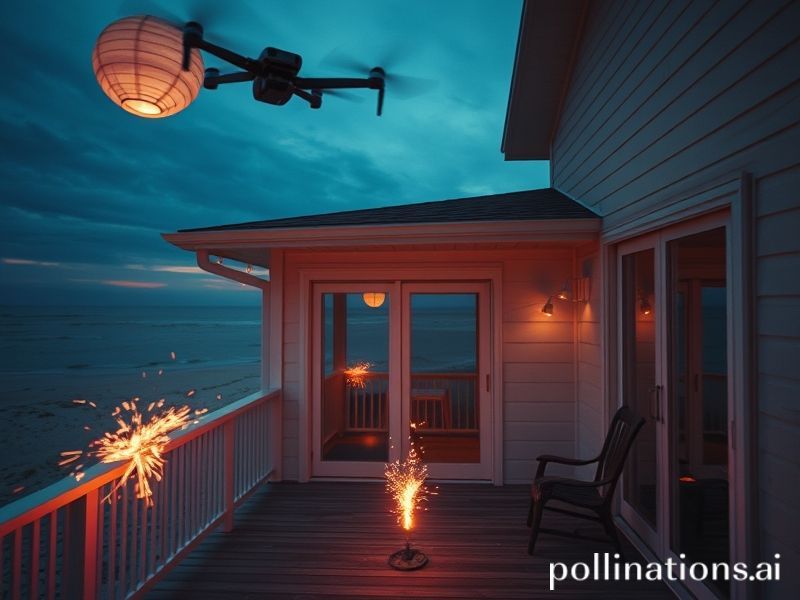Global Escapism: How The Summer I Turned Pretty Finale United the World in Beautiful Denial
**Love in the Time of Existential Dread: How The Summer I Turned Pretty’s Finale Became Humanity’s Collective Therapy Session**
While the Northern Hemisphere collectively sweated through another record-breaking summer and the Southern Hemisphere braced for what climate scientists euphemistically call “interesting times,” millions of humans sought refuge in the ultimate first-world coping mechanism: watching attractive teenagers navigate the apocalypse of young love in beach houses that cost more than most nations’ GDP.
The season finale of Amazon’s The Summer I Turned Pretty landed with the subtlety of a heatwave-induced tsunami, serving as both escapist fantasy and accidental documentary of our species’ remarkable ability to prioritize romantic triangles while the actual triangle of climate, politics, and economics burns merrily in the background. From Mumbai to Manchester, viewers tuned in to watch Belly’s romantic dilemma unfold with the kind of emotional investment that might otherwise be reserved for, say, democratic backsliding or the slow-motion collapse of global supply chains.
International audiences, perhaps sensing that their own summers increasingly resemble deleted scenes from disaster films, found particular solace in the show’s pristine coastal setting—a beach that exists in that magical TV dimension where rising sea levels, plastic pollution, and the occasional floating corpse of democracy haven’t quite arrived yet. The Philippines watched while recovering from Typhoon season. Europeans binged between power outages. Americans streamed during commercial breaks from doom-scrolling.
The show’s global appeal lies partly in its universal themes: first love, family dysfunction, and the human tendency to make spectacularly poor romantic choices while convinced we’re being sophisticated. These transcend cultural boundaries like a particularly aggressive pandemic, though considerably more enjoyable and featuring better lighting. From Tokyo cafés to São Paulo apartments, viewers recognized their own adolescent awkwardness in Belly’s romantic indecision, though most had the good fortune to experience theirs without an international audience of judgmental strangers.
But perhaps the real genius lies in the show’s accidental commentary on modern privilege. While actual teenagers worldwide grapple with student debt, climate anxiety, and the exciting possibility that their first car might also be their last gas-powered vehicle before civilization transitions to bicycle-based economies, Belly’s biggest dilemma involves choosing between two genetically blessed brothers in a house that probably has better WiFi than most UN humanitarian missions.
The international reception has been fascinating in its regional variations. Nordic viewers, known for their melancholic satisfaction with existential despair, found the show’s emotional intensity almost comically American. Latin American audiences related to the family dynamics while wondering why nobody was discussing their immigration status. African viewers appreciated the escapism while calculating how many years of average income would be required for one weekend at Cousins Beach (answer: several lifetimes, assuming no medical emergencies).
The finale’s resolution—spoiler alert for the three people who haven’t watched but somehow clicked on this article—provided the kind of closure that’s increasingly rare in our actual global narrative. Unlike our collective climate trajectory or the plotline of international cooperation, the show actually delivered answers. Belly made her choice. The summer ended. The pretty people remained pretty. Order, briefly, was restored.
As the credits rolled across time zones, from Sydney sunset to California sunrise, humanity briefly united in that most universal of experiences: arguing about fictional teenagers on the internet while our own youth face unprecedented challenges. It’s not quite world peace, but in an era where international consensus usually involves agreeing that everything is on fire, we’ll take what we can get.
The summer turned pretty, then ended. Ours, meanwhile, grows increasingly interesting in the ancient Chinese curse sense of the word. But at least we have streaming services to keep us company in the shade.







